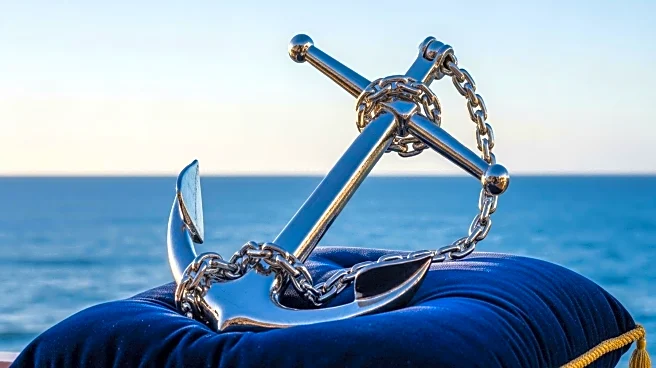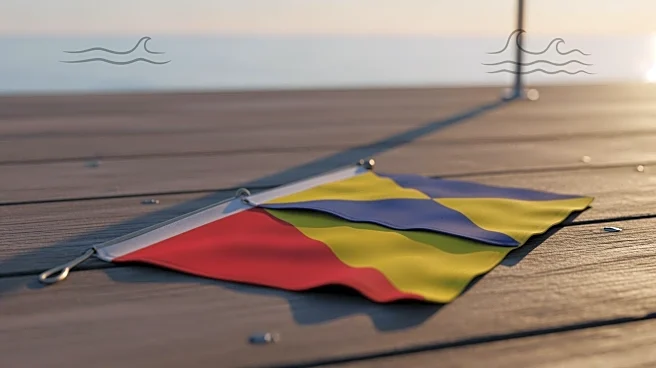What's Happening?
The chief engineer of the MSC Michigan VII, Fernando San Diego San Juan, has entered a plea agreement with the U.S. Attorney's office following a maritime incident in June 2024. The incident occurred as the vessel was departing Charleston, South Carolina, when a failure in the main engine's governor caused the ship to exceed legal speed limits in the harbor. San Juan, a Filipino national, was charged with failing to report hazardous conditions and obstructing the investigation by providing false information to authorities. The plea agreement outlines that San Juan did not inform the U.S. Coast Guard of the mechanical issues and instructed another engineer to withhold information. The vessel, built in 2000 and registered in Liberia, faced multiple mechanical problems, including issues with the main engine and cooling systems, which were not adequately addressed before the incident.
Why It's Important?
This case underscores the critical importance of compliance with maritime safety regulations and the potential consequences of neglecting such responsibilities. The incident highlights the risks associated with mechanical failures on large vessels and the need for thorough reporting and maintenance protocols. The plea agreement serves as a reminder to maritime operators of the legal and financial repercussions of failing to adhere to safety standards. The incident also had significant local impacts, including the temporary closure of the Arthur Ravenel Jr. Bridge and evacuation of nearby areas, illustrating the broader societal and economic implications of maritime safety breaches.
What's Next?
While no sentencing date has been announced, the plea agreement indicates potential penalties for San Juan, including imprisonment and fines. The case may prompt increased scrutiny and regulatory measures within the maritime industry to prevent similar incidents. Stakeholders, including shipping companies and regulatory bodies, may need to reassess safety protocols and training procedures to ensure compliance and prevent future occurrences. The incident could also lead to policy discussions on improving maritime safety standards and enforcement mechanisms.
Beyond the Headlines
The incident raises questions about the adequacy of training and handover procedures for key personnel on maritime vessels. San Juan's brief handover period may have contributed to the oversight of critical mechanical issues. This case could lead to industry-wide evaluations of training and onboarding processes to ensure that engineers and other critical staff are fully prepared to manage complex vessel systems. Additionally, the environmental and economic damages caused by the incident highlight the need for robust emergency response plans to mitigate the impact of maritime accidents.








